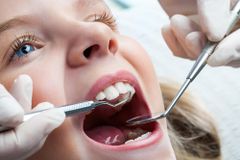Pediatric Dentistry Advice: How Thumbsucking Affects Children's Teeth

Early thumb sucking is a natural reflex that helps babies and toddlers feel secure. According to pediatric dentistry professionals, most children outgrow the habit between ages two and four. While early thumbsucking may have no harmful effects, sucking after primary teeth emerge could cause problems with permanent teeth. The Pediatric Dental Group of Hawaii has years of experience dealing with this problem and is here to help. An experienced dentist for kids can address parents' concerns about thumbsucking and suggest ways to help children break the habit:
Persistent Thumbsucking Can Lead to Problems Later
Sucking can cause an open bite, which occurs when the front teeth don't erupt fully and may be pushed forward. When not properly aligned, teeth are more likely to come in crooked. Sucking becomes especially problematic when permanent teeth first appear around age five. Pediatric dentistry experts report that persistent sucking can cause the jaw to become misaligned or the roof of the mouth to be malformed. Children may develop an overbite or have difficulty with pronunciation when developing language skills.
Pediatric Dentistry Offers Advice on How To Break the Habit
A dentist for kids can recommend tactics to halt thumbsucking before problems arise. Parents should create a secure environment with positive reinforcement, as sharp reprimands and punishments will only aggravate the problem. Bandaging children's thumbs or coating them with a bitter substance can help remind them not to suck. It’s often effective to get older children to choose the method by which they want to stop. Dentists recommend an oral appliance called a "tongue crib" to discourage persistent sucking.
Pediatric dentistry helps detect and prevent problems related to thumb sucking. For more help on this issue, call the Pediatric Dental Group in Honolulu, HI, at (808) 593-8828 or in Lihue at (808) 245-2131. You can also see their website to learn more.
About the Business
Have a question? Ask the experts!
Send your question

